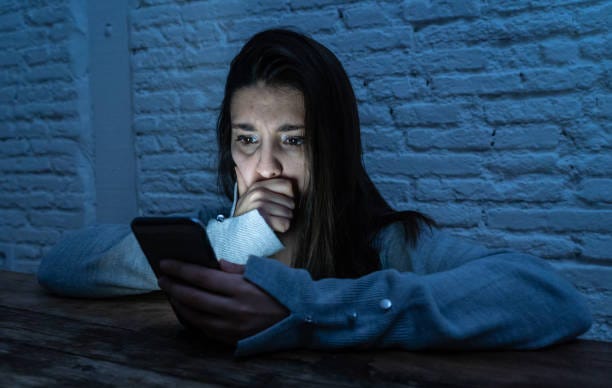In the digital age, personal privacy is paramount. Yet, it's often threatened by a disturbing trend: revenge porn or doxing.
Revenge porn, or non-consensual pornography, involves sharing intimate images without consent. It's a form of online harassment with severe implications. Doxing is similar because it involves publishing private or identifying information about a particular individual on the internet, typically with malicious intent.
Victims often feel violated and helpless. The impact extends beyond emotional distress, affecting personal relationships and professional reputations.
Understanding the legal landscape is crucial. Laws vary across states, with some offering more protection than others.
This guide aims to empower you with knowledge. We'll also provide actionable advice on how to protect yourself, report incidents, and navigate the legal system. Let's take a stand against revenge porn together!
Understanding Revenge Porn and Its Consequences
Revenge porn is a form of online harassment. It involves sharing intimate images or videos without the subject's consent. Often, these images are shared by ex-partners seeking to cause harm or humiliation.
The consequences of revenge porn are far-reaching. Victims often experience severe emotional distress. The violation of their privacy can lead to feelings of shame, fear, and isolation.
Moreover, the impact isn't just emotional. Revenge porn can damage personal relationships and professional reputations. It can lead to job loss, social ostracization, and even legal issues.
The psychological tactics used by perpetrators can be manipulative and coercive. They often exploit trust and intimacy, turning them into weapons against their victims.
Understanding the nature and consequences of revenge porn is the first step towards prevention and protection. It's crucial to be aware of the risks and to take proactive measures to safeguard your digital content.
Legal Landscape: Revenge Porn Laws in the US
In the United States, revenge porn laws vary by state. Some states have specific laws against it, while others do not. Understanding these laws is crucial for victims seeking justice.
The penalties for revenge porn can include fines and imprisonment. However, the severity of these penalties varies. It's important to know your state's laws to understand your rights and potential legal recourse.
Immediate Steps to Take if You're a Victim
If you find yourself a victim of revenge porn, it's crucial to act quickly. The faster you respond, the better your chances of minimizing the damage.
First, document everything. This includes taking screenshots of the images or videos and any related messages or posts. This evidence can be crucial in a legal case.
Next, report the incident. Contact local law enforcement and provide them with all the evidence you've gathered. It's also important to report the incident to the website or social media platform where the content was posted.
Here are some steps to follow:
Document everything: screenshots, messages, posts.
Report to local law enforcement.
Report to the website or social media platform.
Consult with a lawyer to understand your legal options.
Reach out to support groups or counseling services for emotional support.
Documenting and Reporting Revenge Porn
When dealing with revenge porn, documentation is key. It's crucial to capture screenshots of the offending material. This includes the images or videos, any associated comments, and the URLs where they're posted.
Reporting the incident is the next step. Contact the local law enforcement agency and provide them with your evidence. Remember, it's important to report as soon as possible.
Also, report the incident to the website or social media platform where the content was posted. They may be able to remove the content quickly.
Finally, consider seeking legal advice. A lawyer can guide you through the process and help you understand your rights and options.
Removing Content and Legal Recourse
Once you've documented and reported the incident, the next step is to get the content removed. This can be a complex process. It often involves multiple parties, including website administrators and social media platforms.
In some cases, you may need to file a formal takedown request. This is a legal document that demands the removal of the content. It's best to consult with a lawyer before taking this step.
Legal recourse is also an option. Depending on the laws in your state, you may be able to sue the perpetrator for damages. This can include emotional distress, loss of reputation, and other harms.
Remember, each case is unique. It's important to seek professional advice to understand the best course of action for your situation.
Contacting Websites and Social Media Platforms
Most websites and social media platforms have policies against revenge porn. They may be able to remove the content quickly. To do this, you'll need to find the platform's reporting process.
This usually involves filling out a form or sending an email. Be sure to include all the necessary information. This includes the URLs of the offending content and any evidence you've gathered.
Remember, the quicker you report, the sooner the content can be removed.
Seeking Legal Action Against Perpetrators
If you decide to take legal action, it's important to find a lawyer who specializes in this area. They can guide you through the process and help you understand your rights.
In some cases, you may be able to sue the perpetrator for damages. This can include emotional distress, loss of reputation, and other harms.
Remember, each case is unique. It's important to seek professional advice to understand the best course of action for your situation.
Preventative Measures to Safeguard Your Digital Content
Preventing revenge porn starts with safeguarding your digital content. This involves being mindful of what you share and with whom. Remember, once something is shared online, it's hard to control where it ends up.
Consider using encryption for sensitive content. This can add an extra layer of security. It makes it harder for unauthorized people to access your files.
Here are some additional steps you can take:
Use strong, unique passwords for all your accounts.
Enable two-factor authentication where possible.
Regularly update your devices and apps to ensure you have the latest security features.
Be cautious of phishing attempts that try to trick you into revealing your passwords or personal information.
Regularly back up your data to a secure location.
Remember, prevention is the best defense. By taking these steps, you can reduce the risk of becoming a victim of revenge porn.
Support and Resources for Victims
If you're a victim of revenge porn, know that you're not alone. There are numerous resources available to help you navigate this difficult time.
Non-profit organizations like the Cyber Civil Rights Initiative offer support to victims. They provide advice on legal options and removing content from the internet.
There are also online support groups where you can connect with other victims. Sharing your experiences can provide comfort and practical advice.
Remember, it's important to seek professional help if you're struggling with the emotional impact of revenge porn. Therapists and counselors can provide valuable support.
The Importance of Advocacy and Education
In conclusion, protecting yourself from revenge porn involves understanding the laws, taking preventative measures, and knowing what to do if you become a victim.
However, the fight against revenge porn doesn't stop there. Advocacy for stronger laws and education about digital safety are crucial in preventing future incidents.
Indiana Revenge Porn Attorney
If you or someone you know is a victim of revenge porn or doxing, please contact the Law Office of Mark Nicholson at 317-219-3402. We will fight to take down those images!





